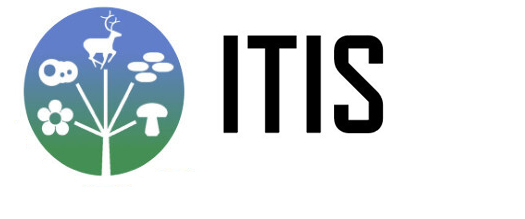| |
|
|
|
| |
Expert(s): |
|
|
| |
Expert: |
Roy W. McDiarmid
|
|
| |
Notes: |
U.S. Geological Survey, Biological Resources Division, Patuxent Wildlife Research Center |
|
| |
Reference for: |
Sternotherus odoratus |
|
| |
|
|
|
| |
Other Source(s):
|
|
|
| |
Source: |
NODC Taxonomic Code, database (version 8.0)
|
|
| |
Acquired: |
1996 |
|
| |
Notes: |
|
|
| |
Reference for: |
Sternotherus odoratus |
|
| |
|
|
|
| |
Publication(s):
|
|
|
| |
Author(s)/Editor(s): |
Banks, R. C., R. W. McDiarmid, A. L. Gardner, and W. C. Starnes
|
|
| |
Publication Date: |
2004 |
|
| |
Article/Chapter Title: |
|
|
| |
Journal/Book Name, Vol. No.: |
Checklist of Vertebrates of the United States, the U.S. Territories, and Canada, draft (2004) |
|
| |
Page(s): |
|
|
| |
Publisher: |
|
|
| |
Publication Place: |
|
|
| |
ISBN/ISSN: |
|
|
| |
Notes: |
As-yet (2004) unpublished manuscript from 1998 |
|
| |
Reference for: |
Sternotherus odoratus |
|
| |
|
|
|
| |
Author(s)/Editor(s): |
Banks, R. C., R. W. McDiarmid, and A. L. Gardner
|
|
| |
Publication Date: |
1987 |
|
| |
Article/Chapter Title: |
Checklist of Vertebrates of the United States, the U.S. Territories, and Canada |
|
| |
Journal/Book Name, Vol. No.: |
Resource Publication, no. 166 |
|
| |
Page(s): |
79 |
|
| |
Publisher: |
United States Department of the Interior Fish and Wildlife Service |
|
| |
Publication Place: |
Washington, D.C., USA |
|
| |
ISBN/ISSN: |
|
|
| |
Notes: |
|
|
| |
Reference for: |
Sternotherus odoratus |
|
| |
|
|
|
| |
Author(s)/Editor(s): |
Crother, Brian I., Jeff Boundy, Frank T. Burbrink, Jonathan A. Campbell, Kevin de Queiroz, et al.
|
|
| |
Publication Date: |
2012 |
|
| |
Article/Chapter Title: |
Scientific and standard English names of amphibians and reptiles of North America north of Mexico, with comments regarding confidence in our understanding, Seventh Ed. |
|
| |
Journal/Book Name, Vol. No.: |
Herpetological Circular, no. 39 |
|
| |
Page(s): |
1-92 |
|
| |
Publisher: |
Society for the Study of Amphibians and Reptiles |
|
| |
Publication Place: |
Shoreview, Minnesota, USA |
|
| |
ISBN/ISSN: |
9780916984854 |
|
| |
Notes: |
Available free as a PDF at http://ssarherps.org/pages/HerpCommNames.php |
|
| |
Reference for: |
Sternotherus odoratus, Eastern Musk Turtle [English] |
|
| |
|
|
|
| |
Author(s)/Editor(s): |
Turtle Taxonomy Working Group [van Dijk, P. P., J. Iverson, A. Rhodin, H. Shaffer, and R. Bour]
|
|
| |
Publication Date: |
2014 |
|
| |
Article/Chapter Title: |
Turtles of the World, 7th Edition: Annotated Checklist of Taxonomy, Synonymy, Distribution with maps, and Conservation Status |
|
| |
Journal/Book Name, Vol. No.: |
Chelonian Research Monographs, no. 5, v. 7 |
|
| |
Page(s): |
329-479 |
|
| |
Publisher: |
|
|
| |
Publication Place: |
|
|
| |
ISBN/ISSN: |
1088-7105 |
|
| |
Notes: |
doi:10.3854/crm.5.000.checklist.v7.2014 - Available online at http://www.iucn-tftsg.org/cbftt/ |
|
| |
Reference for: |
Sternotherus odoratus, Common Musk Turtle [English], Musk Turtle [English], Stinkpot [English] |
|
| |
|
|
|
| |
Author(s)/Editor(s): |
Wermuth, H. and R. Mertens
|
|
| |
Publication Date: |
1961 |
|
| |
Article/Chapter Title: |
|
|
| |
Journal/Book Name, Vol. No.: |
Schildkroten, Krokodile Bruckenechsen |
|
| |
Page(s): |
|
|
| |
Publisher: |
VEB Gustav Fischer Verlag, Jena |
|
| |
Publication Place: |
Germany |
|
| |
ISBN/ISSN: |
|
|
| |
Notes: |
|
|
| |
Reference for: |
Sternotherus odoratus |
|
| |
|
|
|

